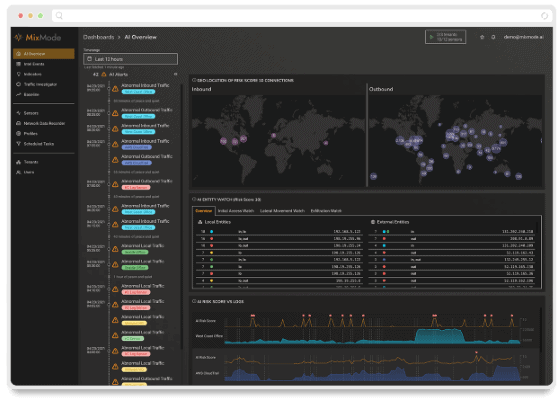AI is Picking Up Speed Overseas
An online study found that over a quarter of respondents in Europe, the Middle East, and Asia would prefer their cybersecurity to be managed by AI.
The study interviewed more than 10,000 people in EMEAi and was conducted by Palo Alto Networks and YouGov alongside Dr Jessica Barker, an expert in the human nature of cybersecurity.
It’s purpose was to explore the attitudes towards newer cybersecurity technologies such as machine learning and artificial intelligence and their function in protecting their digital lives.
According to the study, Itaians had the most confidence in relying on AI for cybersecurity, coming in at 38 percent. In the United Kingdom, however, only 21 percent of participants would choose AI over humans to protect themselves digitally.
The EMEAi study also suggests that people who are open to ML and AI implementation are more likely to have a positive outlook on the role of cybersecurity in general.
Out of those who preferred their security managed by AI, 29 percent said they feel having cybersecurity has a very positive impact on their overall online experience, compared to just 20 percent of those who didn’t.
Greg Day, VP and CSO EMEA at Palo Alto Networks, comments on the findings: “AI is already playing a vital role in cybersecurity, helping to detect and prevent breaches with new capabilities that the human brain simply could not achieve. It is encouraging, therefore, to see the gap closing between AI- and human-managed cybersecurity technologies, and the positive attitude towards cybersecurity checks that comes with a preference for AI technologies is one we hope to see embraced by more people in the future. Humans are risk averse, yet innovation requires taking new steps, and many still see change as risk. Taking responsibility for data loss and keeping personal data secure is the first step in ensuring we are using best practice within a business, and education is key in helping respondents feel safer online.”
The Market for AI in Cybersecurity Expected to Increase Over 320% by 2026
Support and sales of AI software and services is expected to reach $38 billion by 2026, which is a massive increase from just $9 billion this year.
According to the market research firm Markets and Markets, the rise of IoT and other connected devices, exponentially increasing cyber-attacks, the complicated nature of the cloud, and advanced hacking methods are perfect market drivers for investment to continue to grow.
The research also discovered the constraints on the market to be the ineffectiveness of AI in stopping zero-day attacks, the rise of insider cyber threats and the prevailing issue of false positives.
“Limited number of cybersecurity and AI professionals, and lack of interoperability with existing information systems pose major challenges to the AI in cybersecurity market,” they wrote.
Luckily, with the emergence of context-aware AI-driven companies like MixMode there are already emerging solutions to these problems.
How Artificial Intelligence is Powering Cybersecurity
We get a case-by-case-based look at just how important it is to have AI-powered cybersecurity in the current digital landscape published in this article by David Edwards for Robotics and Automation News.
Edwards argues that today we are seeing more and more automated cyber-attacks by hackers willing to spend the resources to manifest them, while many companies are still turning a costly blind eye to their cybersecurity.
Even more organizations rely on manual efforts to gather internal security findings and contextualize them with external threat information.
However, he argues, “Such outdated methods and strategies need to part ways for AI because they use up a lot of time, in which cyber-attackers can successfully take advantage of vulnerabilities to breach systems and steal data.”
The cases for AI in Cybersecurity:
- Data Breaches: the most obvious and pressing of issues is clearly that attackers are exploring AI technology, and in the current climate of attacks on governments (see aforementioned Florida), hospitals, and data centers we cannot stand to get left behind without the right defenses.
- Threat Identification and Risk Assessment: Many companies do feel as though they are properly armed for these attacks with the cybersecurity software they have implemented currently. However, most of this technology is dependant on human security teams to sift through an impossible amount of alerts they get each day and find the most pressing ones, with most of the alerts being false positives in the first place. An AI system can drastically cut down on time and money spent on manual processes that can and should be automated.
- Improving Human Experience: Already, AI is showing promises of being the answer to the challenges of security and cyber-attacks. Using AI for cybersecurity has introduced biometric login techniques for increased security. With Natural Language Processing, Artificial Intelligence systems can select useful information from scanned data, thus providing better insight into cyber-attacks and mitigation strategies.
By Ana Mezic, Marketing Coordinator at MixMode

